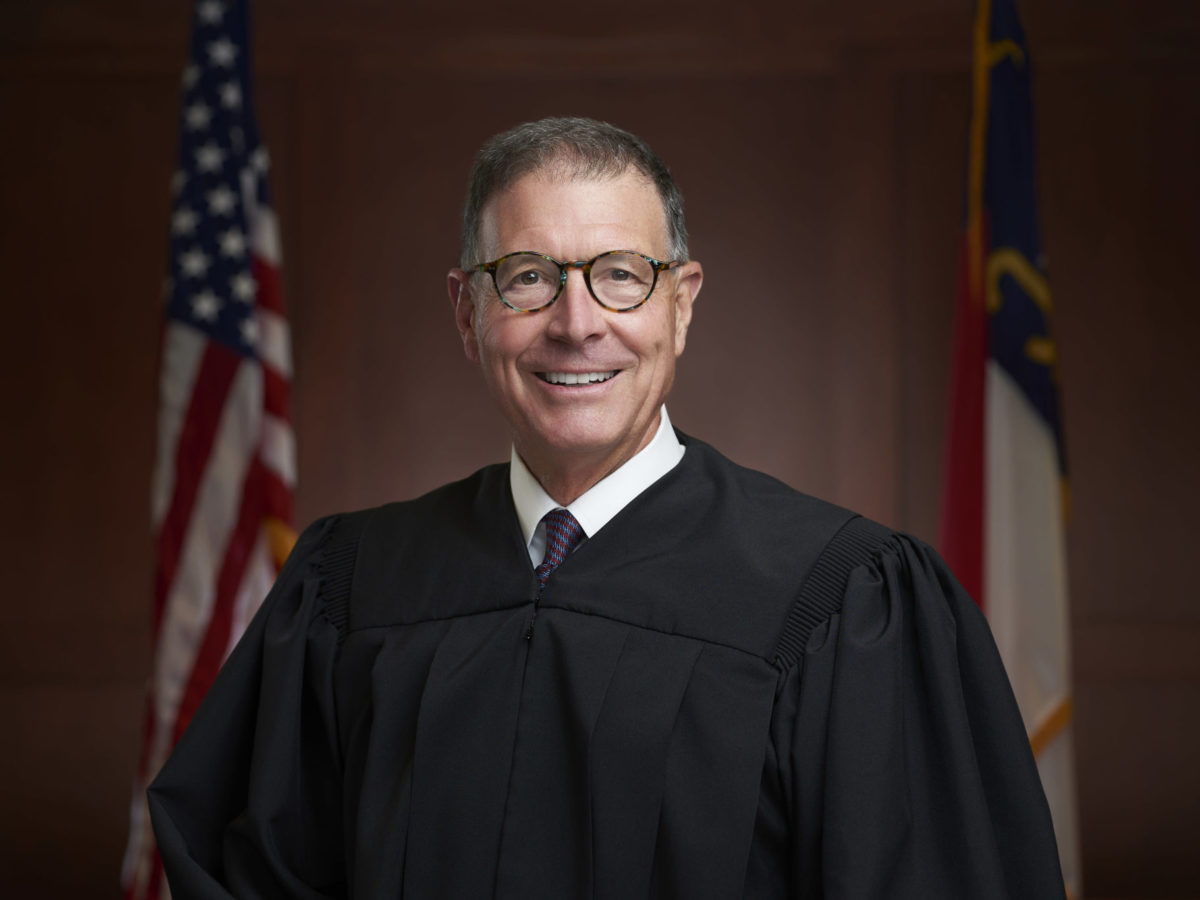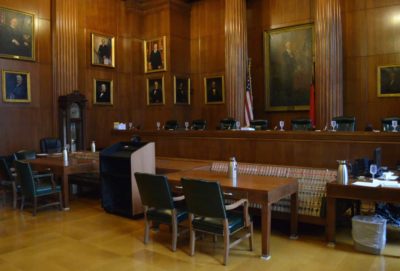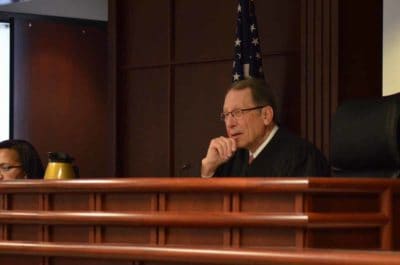

Special Superior Court Judge Michael Robinson laid out for the parties in the Leandro case what’s going to happen between now and April 20 during a conference hearing today. April 20 is the deadline for him to report back to the state Supreme Court.
Robinson has to tell them whether the passage of the biennial budget in 2021 impacts previous Leandro Judge David Lee’s order that the state must turn over $1.7 billion to fund a comprehensive plan aimed at getting the state in line with its constitutional duties on public education.
By April 4, the state — the defendant in the case —must provide the court with its take on how much of the comprehensive plan was funded by the budget and whether that funding was sufficient.
Scott Bayzle, an attorney representing the plaintiffs, previewed what his side will say when it has a chance to respond on April 8 — the date by which all other parties must submit briefs on the same subject.
Bayzle said that Lee and his order plainly indicate that every element of the comprehensive plan developed in Lee’s court are needed.
“Those issues have been conclusively decided in this case,” he said.
Nevertheless, Amar Majmundar, representing the defense via the state Attorney General’s office, put the percentage of the comprehensive plan funded by the budget at about 30 to 35%, though he said that number was just “guesswork.” What wasn’t in question, he said, was the fact that the budget didn’t provide enough funding to pay for years two and three of the plan. Those are the years covered by the biennium budget.
Matthew Tilley, an attorney for House Speaker Tim Moore, R-Cleveland, and Senate President Pro Tem Phil Berger, R-Rockingham, both of whom intervened in the case in December 2021, said the percentage was much higher and that $900 million of the $1.7 billion required was funded.
The North Carolina Public School Forum put out an analysis that determined the budget funded about half of what the comprehensive plan called for.
After April 8, response briefs will be due by April 11. Finally, a hearing will be held at 9 a.m. on April 13 at the Wake County Courthouse in Raleigh.
After that, Robinson will decide what to do, including potentially amending Lee’s order.
Just Monday night, the state’s highest court issued an order granting the request of the plaintiffs and defendants to have its justices take a look at the case. But, before the Supreme Court hears the case, they wanted it to go back to the superior court “for no more than thirty days.”
Also Monday night, the Supreme Court’s Chief Justice, Republican Paul Newby, reassigned the case from Lee to Robinson, which is why Robinson presided today. Robinson is a Republican while Lee is a registered Democrat.
There was some argument during the conference hearing as to the scope of what Robinson would consider in the short time period before the case goes to the Supreme Court.
Tilley argued that the Supreme Court was giving Robinson the power to consider not just how much of the comprehensive plan was funded by the budget and what impact that should have on Lee’s order, but other legal questions as well. For instance, he brought up the question of whether the items in the comprehensive plan not funded by the budget were necessary given “alternative means of providing a sound basic education provided by the General Assembly in the budget.”
Robinson, however, rebuffed the suggestion.
“There is no way that this court could engage in that kind of analysis within the time frame that the Supreme Court has given me,” he said.
The Leandro case started in 1994 when families from five low-wealth counties sued the state, saying it was not meeting its obligation to educate all students equally. The state Supreme Court ultimately said that North Carolina’s children have a fundamental right to the “opportunity to receive a sound basic education” and that the state had not lived up to that constitutional requirement.
Most recently, the North Carolina Court of Appeals blocked in late 2021 the transfer of the $1.7 billion ordered by Lee. A three-judge panel ruled 2-1 that while Lee might be right to say the funds are needed, it is not within his power to order money be appropriated.



